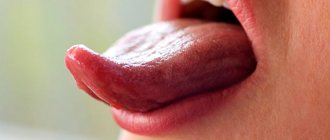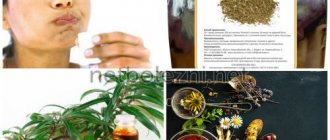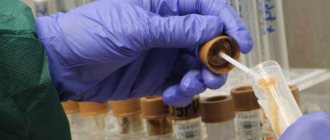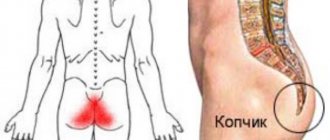Burning sensation in the mouth and tongue - causes
Local factors:
- Decreased saliva secretion. The mucous membrane becomes dry, lips and tongue crack. Food and liquid irritate the damaged areas, and they sting quite severely.
- Fungal candidiasis. Popularly known as thrush. Fungi, during their rapid proliferation (which happens when the immune system is weakened), provoke a burning sensation in the oral mucosa and painful sensations.
- Hard dental deposits. The formation of tartar is accompanied by the simultaneous delamination of old layers. The separated particles affect the mucous membrane, causing an unpleasant reaction.
- Allergy. A burning sensation in the mouth is nothing new for those with intolerance to certain foods, medications, and even denture materials.
- Leukoplakia. Excessive keratinization on any part of the epithelium usually does not provoke tingling sensations, but this disease cannot be excluded from the list of possible persons involved.
- Diseases of the tongue. Desquamative glossitis, or “hairy” tongue, is a common cause of persistent burning sensation in the mouth. The papillae become very sensitive.
- Herpetic infection. The blisters, which quickly transform into erosions, cause severe itching and unbearable burning both in the normal state and when eating.
- Grinding of teeth. Unconscious movements of the teeth during sleep, called bruxism, automatically affects the tongue with the appearance of microtraumas on it, and, accordingly, a burning sensation.
- Lichen planus. Erosive damage to the mucous membrane, white ulcers haunt the patient during an exacerbation, causing severe discomfort.
General factors:
- Unbalanced diet
- Blood diseases
- Hormonal disbalance
- Stomach pathologies
- Nervous disorders
- Avitaminosis
- Insulin-dependent diabetes
- Bulimia
In these conditions, a burning taste in the mouth may appear and disappear, as it is a concomitant symptom.
Glossitis and glossalgia
Glossitis of the tongue
These are the main prerequisites for the manifestation of the symptom. One is of an infectious nature, the other is associated with internal processes in the body.
Glossitis is an acute inflammation of tissues associated with the presence of a source of infection in the oral cavity. The tongue becomes red and swollen, salivation becomes abundant, taste sensations and clarity of speech are lost. It is difficult for a person to chew food, fever and enlarged lymph nodes are possible.
If you do not start treating glossitis on time or use folk remedies, you may encounter an abscess, phlegmon of the neck and the appearance of growths on the tongue, as well as the transition of the inflammatory process to chronic.
With glossalgia, a “burning” tongue may outwardly look completely healthy. Or maybe change your appearance. The disease is not of an infectious nature, but of an immunological nature: it is associated with a general weakening of the body due to internal diseases, lack of vitamins and other phenomena.
"Geographical language"
With both pathologies, one cannot help but notice redness, epithelial detachment, pustules and other unpleasant phenomena:
- “Geographical tongue” (desquamative glossitis). It looks like vaguely shaped areas with dead epithelium, due to the painful detachment of which a person feels the tongue tingling or burning.
- Folded tongue . This is usually a deep longitudinal furrow right in the center and symmetrical lateral branches. The folded areas are sensitive, easily irritated and can become a breeding ground for candidiasis and other infectious diseases.
- Plaques and papules . When they open, they release purulent contents. In addition, they create severe discomfort in the mouth.
- Minor wounds, scratches. Associated with injury from teeth or hard food.
If everything is clear with the signs of injury, then the reasons for the formation of other phenomena need to be understood in detail. To understand why your tongue bakes and what to do about it, it is better to immediately contact a dental clinic.
How does burning in the mouth and tongue manifest?
The symptom is clearly noticeable, may occur sporadically and disappear on its own. This happens when taking bitter medicines or eating spicy foods (“fire” in the mouth). A slight irritation of the mucous membrane may bother you after dental procedures; this is quite normal.
True diseases can be assumed if:
- Dryness and burning in the mouth often appear in certain areas of the oral cavity
- Unpleasant sensations intensify and are accompanied by numbness
- The tingling becomes constant
In most patients, the burning sensation manifests itself in the morning, intensifies during the daytime and subsides towards night.
Predisposing factors
Itching and burning in the tongue area can occur for a number of reasons, so it is very important to conduct a whole range of studies to establish the true mechanisms of pathology formation.
General factors
Often, a burning sensation on the tongue is provoked by mechanical damage when the mucous tissues of the tongue are affected, leading to disruption of the capillary blood supply.
If the burning sensation from the tongue tends to generalize to the inside of the cheeks, palatine space and lips, then the development of stomalgia occurs. The disease occurs when mucous tissues are systematically traumatized by teeth with chips, cracks or sharp edges, braces or incorrectly installed fillings.
In addition to injuries, burning sensation can be caused by the following factors:
- reduction of gastric secretion up to 75%;
- Iron-deficiency anemia;
- B12-deficiency anemia (lack of vitamin B leads to deterioration of nerve conduction);
- gastroduophageal reflux of any origin;
- diabetic disease;
- some mental illnesses (innervation of nerve roots and processes increases during excitement);
- carrying out antihypertensive therapy (with long-term treatment with Capoten, Monopril, a short-term burning sensation may occur);
- active phase of the menstrual cycle in women;
- menopause.
Often, a burning sensation in the area of the tongue and sublingual cavity is recorded against the background of viral hepatitis of any group, pulmonary tuberculosis, cholecystitis.
When the hypothalamus is disturbed, damage to the autonomic nervous system occurs, which leads to a deterioration in blood microcirculation and the secretion of various glands, including salivary glands.
Therefore, with diabetes and other endocrinological diseases, dry mouth and burning sensation on the tongue are noted . Stress, overwork and emotional instability can provoke the occurrence of such a symptom.
Pathological causes
In dentistry, there are several main factors that cause dry mouth, soreness, burning of the tongue and discomfort in the oral cavity:
- Xerotomia. The symptom complex of xerotomy is expressed not only by dryness and burning in the tongue, but also by a disturbance in the secretion of the salivary glands.
On examination, cracks ranging from barely noticeable to pronounced deep are noted on the surface of the tongue. The burning sensation intensifies to the point of pain when the patient eats acidic foods, fresh fruits, carbonated or sour drinks. The etiology of xerotomia is often caused by dehydration due to intoxication, Sjögren's disease. - Candidiasis. Fungal infection of the oral cavity is always accompanied by unpleasant sensations in the form of itching, burning, pain in the areas of fungal rashes.
Candida fungus exists in all people, but under certain factors it turns into a pathogenic agent, causing diseases.Clinically, with candidiasis, the tongue is coated with a white, often dry coating, and the tongue area itself turns a rich bloody color. Along with itching and burning, patients experience severe pain on the tip of the tongue.
- Allergic reactions. Allergies and inflammation are often the body's reaction to foreign bodies in the oral cavity.
Thus, when installing braces, during prosthetics or osseointegration, as well as when wearing removable orthodontic structures, irritation may occur. Despite the hypoallergenic nature of modern materials, the likelihood of allergies, rejection and other unpleasant consequences of prosthetics is quite likely. - Deposits on tooth enamel. Insufficient care or lack of oral hygiene leads to the formation of stones on the inner surface of the tooth.
Hard plaque contains huge colonies of pathogenic microorganisms that release toxic components.Microbes provoke the development of inflammatory foci in the oral cavity, leading to chronic glossalgia. The condition is easily eliminated by hygienic teeth cleaning at the dentist.
- Epithelial leukoplakia. When the mechanisms of desquamation of epithelial structures at the cellular level are disrupted, as well as disruption of regenerative processes, it leads to the formation of white plaques on the cheeks, on the surface of the palate and tongue.
Often the course of the disease is latent with temporary episodes of exacerbation. Leukoplakia occurs more often in smokers, becoming a sign of a precancerous condition. - Herpetic rashes. Herpes is an infectious disease of a viral nature.
Once an episode occurs, it almost always leads to chronicity of the pathological process. The appearance of blisters on the mucous membranes of the throat indicates an exacerbation of the disease and requires immediate use of antiviral drugs. As the patient recovers, the blisters transform into small erosive lesions.
Almost all diseases of the oral cavity of any origin can cause glossalgia. This is due to the huge number of nerve roots and receptors in the tongue and sublingual cavity, including multiple capillary weaves.
Diagnostics
How to find out what exactly caused the burning sensation in the mouth and tongue? Only a specialist can determine the reasons. First you need to visit the dentist. If there are no visible local causes that could cause this problem, you need to go to a therapist. The patient will be prescribed tests (urine, blood - general analysis and sugar, biochemical studies). It is necessary to exclude sexually transmitted diseases and AIDS. It would be useful to consult an endocrinologist - perhaps it is due to hormonal fluctuations. Based on complete information, a preliminary diagnosis can already be made. Get ready for the fact that at the same time you will have to visit a gynecologist, nutritionist, infectious disease specialist, oncologist and doctors of other specialties.
Preventive actions
The main preventive measure is monitoring oral health, that is, timely visits to doctors, treatment of caries, and elimination of other dental diseases. Other measures include:
- complete healthy diet;
- brushing teeth 2 times a day;
- preventive examinations at the dentist at least 2 times;
- healthy lifestyle (disease prevention).
If there is a burning sensation in the tongue, it is important to avoid smoking and drinking alcohol. It is these toxic substances that can negatively affect not only the condition of the oral cavity, but also the health of the patient as a whole.
The video provides additional information on the topic of the article.
Burning mouth - treatment
The main goal is to eliminate the root cause found at the diagnostic stage. If it is not associated with dental pathology, the oral cavity is sanitized, worn fillings are removed and new fillings are placed, and dentures are corrected. Stomatitis and glossitis often require antibiotics. Candidiasis is treated with antifungal drugs.
General diseases are treated by a doctor of appropriate specialization, prescribing complex treatment depending on the type of pathology. Measures are being taken to improve immunity, normalize stomach function, stabilize blood glucose levels, and treat neuroses.
At home, you can alleviate the condition by rinsing your mouth with warm infusions of oak bark, sage, and chamomile. 1 tbsp is enough. per standard glass of water. Brew like tea, let cool and rinse your mouth 2-3 times a day. To prevent a burning sensation in the mouth, avoid or at least minimize spicy foods and caustic ingredients in your diet; it is better to avoid alcohol altogether.








